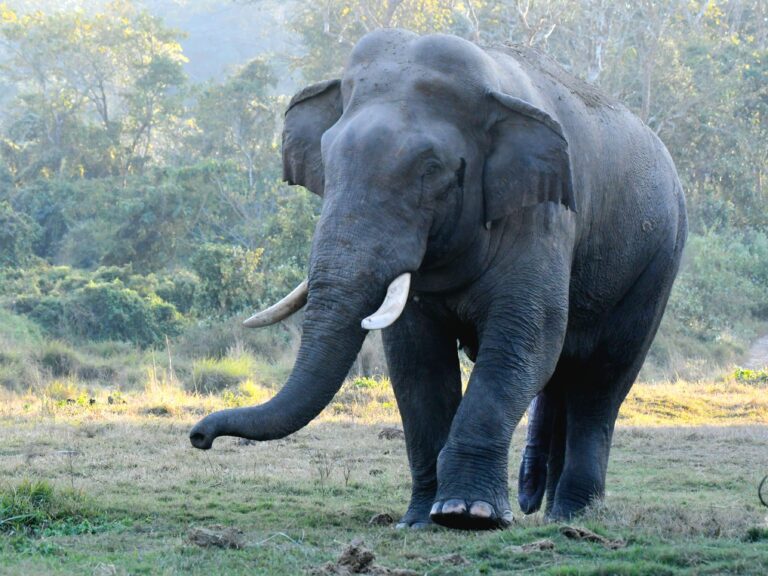On January 5, 2025, a soldier in Chitwan National Park shot and killed a wild elephant. The elephant, known as “makuna,” had been roaming near human settlements, damaging property and causing fear among locals. Park officials said the elephant charged at a patrol team. In self-defense, a soldier fired at the elephant. However, the death of the elephant has raised concerns about whether the situation could have been handled differently.
The elephant was a bull with no tusks, known as a “makuna.” It had been seen near the tourist town of Sauraha since 2023. On January 5, park rangers tried to guide it back into the forest. The elephant attacked the patrol team and threw a ranger off his mount. To protect the ranger, the soldier fired at the elephant. The shot hit the elephant’s neck, and it later died.
Chitwan National Park explained that the soldier had no choice but to act in self-defense. They said the team had no time to stop the elephant’s charge. However, some wildlife experts think the park could have used other methods to handle the elephant, given that it was wearing a radio collar.
The makuna elephant had been fitted with a radio collar, which tracked its movements. Critics argue that the park could have used this technology to find and guide the elephant safely. Instead of shooting it, they believe non-lethal options, like tranquilizing the elephant, should have been used.
Shanker Luitel, a wildlife activist, said, “Human lives must be protected, but we must also find ways to manage wildlife without killing them.” He believes the park should have done more to avoid a deadly situation.
The makuna elephant had been on its own for some time. It left its herd in 2023 and stayed near Chitwan. Unlike other elephants, it roamed during the day, which made it more visible to people. The elephant was often seen near hotels and houses, where it caused damage. It was also known to charge at anyone in its path. Despite this, it had not killed anyone.
Before the shooting, the park tried different methods to control the elephant. They tried using tranquilizer darts, but these didn’t work. Park rangers also conducted regular patrols to keep the elephant away from human settlements. But the elephant continued to cause trouble.
Local hotel owners and residents were worried about the elephant’s behavior. They complained that it was destroying their property. Kiran Mahato, a local official, said the elephant had damaged 12 hotels and five homes. He added, “It used to charge whenever it saw someone.”
Officials in the area had talked to the national park about the problem. They had requested action to deal with the elephant. A meeting was held just before the shooting incident to discuss how to handle the elephant issue. However, park officials did not mention the possibility of shooting the elephant during the meeting.
In Nepal, elephants are a protected species. The law says it’s illegal to kill them, but there is an exception when human lives are at risk. The authorities say the shooting was allowed under this rule. However, experts disagree on whether the situation called for lethal force.
Former park officials say rangers are trained to avoid shooting animals, even in dangerous situations. They believe the shooting was a result of high stress and quick decisions. Many rangers have been injured in the line of duty, and some have even lost their lives.
The shooting of the makuna elephant raises important questions about wildlife management. Technology like radio collars can help track animals, but authorities must also use this information wisely. The park should have explored safer ways to manage the elephant’s behavior. Non-lethal measures like tranquilizing the elephant might have been a better option.
This incident is a reminder that humans and wildlife need to coexist peacefully. More careful planning, better training, and stronger community cooperation can help prevent similar situations in the future. We must find a balance that protects both people and animals.


